Ashwagandha
Ashwagandha: How to Enjoy the Benefits of Caffeine-Free Wellness

Are you tired of the jittery, crash-inducing effects of caffeine? We hear you. That’s why we’re here to introduce you to a natural, energy-boosting alternative: ashwagandha.
This powerful herb has been gaining popularity for its ability to provide sustained energy without the negative side effects of caffeine. In this article, we’ll explore the question on everyone’s mind: is ashwagandha caffeine-free?
Get ready to discover a holistic solution that can transform your daily routine.
Key Takeaways
- Ashwagandha is a natural herb used in Ayurvedic medicine and does not contain caffeine.
- It provides a sustained energy boost without jitters or sleep disruption.
- Ashwagandha can help reduce the negative effects of caffeine, such as anxiety and increased heart rate.
- Combining ashwagandha with caffeine may have synergistic effects on mental and physical health.
What Is Ashwagandha
Ashwagandha, also known as Withania somnifera, is a popular adaptogenic herb that has been used for centuries in traditional Ayurvedic medicine. This herb is known for its various benefits, making it a sought-after remedy in holistic wellness practices.

Ashwagandha has been shown to support stress management, promote a healthy response to inflammation, and enhance cognitive function. It’s also believed to support immune health and improve energy levels.
When it comes to understanding ashwagandha’s benefits, it’s important to consider the recommended dosage. The appropriate dosage of ashwagandha may vary depending on individual needs and health conditions. However, a general guideline suggests taking 300-500 mg of ashwagandha extract daily.
It’s always recommended to consult with a healthcare professional before starting any new supplement regimen to ensure safety and effectiveness.
Understanding the Effects of Caffeine
Understanding the effects of caffeine involves examining its impact on the body and mind.

Caffeine is a natural stimulant that affects the central nervous system, providing a temporary boost of energy and alertness.
When consumed, caffeine blocks the neurotransmitter adenosine, which promotes sleep and relaxation.
This leads to increased brain activity and the release of other neurotransmitters like dopamine and norepinephrine, which enhance mood and cognitive function.
Caffeine also stimulates the release of adrenaline, which increases heart rate and blood pressure.

However, the effects of caffeine can vary depending on the individual’s tolerance, metabolism, and overall health.
It’s important to note that caffeine isn’t the only source of natural energy.
Exploring alternative sources like exercise, proper nutrition, and adequate sleep can provide sustained energy without the potential side effects of caffeine.
Ashwagandha’s Natural Energy-Boosting Properties
After understanding the effects of caffeine, it’s important to explore the natural energy-boosting properties of ashwagandha.

Ashwagandha, an ancient herb commonly used in Ayurvedic medicine, has been gaining popularity as a natural herbal alternative to caffeine for increased energy levels. Studies have shown that ashwagandha can help reduce fatigue and improve endurance, making it an excellent choice for those seeking a natural energy boost.
Unlike caffeine, which can lead to crashes and dependency, ashwagandha has been found to have long-term effects on energy levels. It works by nourishing and supporting the adrenal glands, which play a crucial role in maintaining energy levels and managing stress.
Incorporating ashwagandha into your daily routine may provide sustained energy and vitality without the drawbacks of caffeine.
Scientific Studies on Ashwagandha and Caffeine
We have explored the natural energy-boosting properties of ashwagandha, and now it’s time to delve into the scientific studies on ashwagandha and caffeine. Scientific research has been conducted to investigate the effects of ashwagandha and caffeine on human health.

One study published in the Journal of Dietary Supplements found that the combination of ashwagandha and caffeine led to improved cognitive function and increased alertness compared to caffeine alone. Another study published in the Indian Journal of Psychological Medicine reported that ashwagandha supplementation reduced stress and anxiety levels in individuals consuming caffeine.
These studies suggest that the combination of ashwagandha and caffeine may have synergistic effects, providing both mental and physical health benefits.
As we continue to explore ashwagandha and its properties, let’s now address the question of whether ashwagandha contains caffeine.
Does Ashwagandha Contain Caffeine
Our research has confirmed that ashwagandha doesn’t contain caffeine. This makes it a suitable option for those looking for a natural alternative to caffeine.

Ashwagandha is known for its adaptogenic properties, which help the body manage stress and promote overall well-being. Unlike caffeine, which can cause jitters and disrupt sleep, ashwagandha provides a calm and sustained energy boost without the crash.
In terms of caffeine metabolism, ashwagandha has been found to have a positive impact. Studies have shown that it can help reduce the negative effects of caffeine, such as anxiety and increased heart rate. This makes ashwagandha a great complement to caffeine, allowing individuals to enjoy the benefits of caffeine while minimizing its drawbacks.
Now, let’s explore the differences between ashwagandha and caffeine in more detail.
Ashwagandha Vs. Caffeine: a Comparison
Continuing the comparison between ashwagandha and caffeine, it’s important to note their contrasting effects on the body.

While caffeine is a stimulant that provides a temporary boost of energy, ashwagandha works differently. Ashwagandha is an adaptogenic herb that helps the body adapt to stress and promotes overall well-being. Unlike caffeine, which can cause jitteriness and anxiety, ashwagandha has a calming effect on the nervous system.
Additionally, ashwagandha offers a wide range of benefits beyond energy enhancement. It supports immune function, improves sleep quality, and helps manage cortisol levels.
For those seeking caffeine alternatives, ashwagandha provides a natural solution that promotes balance and vitality.
Transitioning into the next section, let’s explore the benefits of choosing ashwagandha over caffeine.

Benefits of Choosing Ashwagandha Over Caffeine
When considering the benefits of choosing Ashwagandha over caffeine, there are two key points to consider.
Firstly, Ashwagandha provides a caffeine-free energy boost, making it a great alternative for those looking to avoid the jitters and crashes associated with caffeine consumption.
Secondly, Ashwagandha has been shown to improve sleep quality, which is crucial for maintaining overall well-being and energy levels throughout the day.
Caffeine-Free Energy Boost
The caffeine-free energy boost that we can experience by choosing Ashwagandha over caffeine is one of the many benefits of this natural alternative. Unlike caffeine, which provides a short-lived burst of energy followed by a crash, Ashwagandha offers a more sustainable and balanced increase in energy levels.
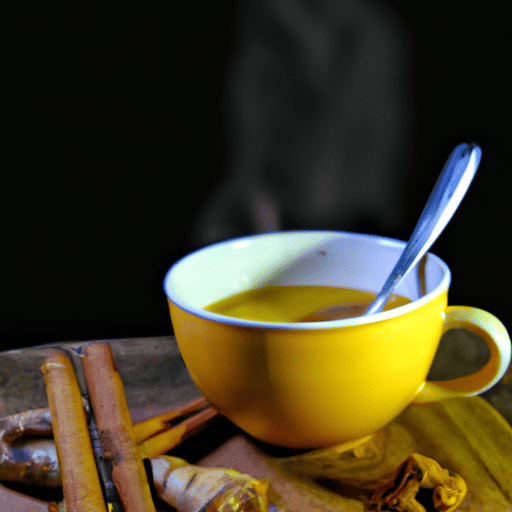
This herb helps to support the body’s natural stress response, which can contribute to increased energy and focus throughout the day. Moreover, Ashwagandha has been shown to improve overall well-being and reduce fatigue, making it a great choice for those seeking a long-term solution for their energy needs.
By opting for Ashwagandha over caffeine, we can avoid the potential negative side effects associated with excessive caffeine consumption, such as jitters, anxiety, and disrupted sleep.
Speaking of sleep, let’s now explore how Ashwagandha can also improve sleep quality.
Improved Sleep Quality
To experience improved sleep quality, we can choose Ashwagandha over caffeine. While caffeine may provide a temporary energy boost, it can disrupt our sleep patterns, leading to restless nights and groggy mornings.

In contrast, Ashwagandha, a natural sleep aid, offers a holistic approach to enhancing our sleep quality. Here are two reasons why Ashwagandha can be a better choice:
- Regulates cortisol levels: Ashwagandha has been shown to reduce cortisol, the stress hormone that can interfere with our ability to fall asleep and stay asleep. By keeping cortisol levels in check, Ashwagandha promotes a sense of relaxation and tranquility, allowing for a more restful sleep.
- Enhances GABA activity: Ashwagandha has been found to increase the activity of gamma-aminobutyric acid (GABA), a neurotransmitter that promotes calmness and reduces anxiety. By enhancing GABA activity, Ashwagandha helps quiet the mind and prepare our body for a peaceful slumber.
How to Incorporate Ashwagandha Into Your Daily Routine
We can easily incorporate Ashwagandha into our daily routine by adding a small amount of this herb to our morning smoothies or tea.
When it comes to ashwagandha dosage, it’s generally recommended to start with a lower dose and gradually increase it over time. A typical starting dose is around 300-500mg per day, taken in divided doses. However, it’s always best to consult with a healthcare professional to determine the appropriate dosage for your specific needs.
As for the best time to take ashwagandha, many people find that taking it in the morning or early afternoon works well, as it can provide an energy boost and help manage stress throughout the day. However, some individuals may find it more beneficial to take it in the evening to promote relaxation and improve sleep quality. Ultimately, the best time to take ashwagandha may vary depending on your personal preferences and goals.

Potential Side Effects of Ashwagandha
When considering the use of ashwagandha, it’s important to be aware of its potential side effects.
While rare, allergic reactions to ashwagandha have been reported and may include symptoms such as rash, itching, and difficulty breathing.
Additionally, ashwagandha may interact with certain medications, so it’s advisable to consult with a healthcare professional before starting any new supplements.
Some individuals may also experience digestive issues such as upset stomach or diarrhea when taking ashwagandha.

Allergic Reactions Possible
Allergic reactions are a potential side effect of Ashwagandha. While this herb is generally well-tolerated, it’s important to be aware of the possibility of allergic reactions. These reactions can vary in severity and may include symptoms such as itching, hives, rash, swelling of the face or throat, difficulty breathing, and even anaphylaxis, which is a severe and potentially life-threatening allergic reaction.
It’s crucial to consult with a healthcare professional before taking Ashwagandha, especially if you have a history of allergies or are taking other medications. Additionally, it’s recommended to start with a low dose and monitor your body’s response to the herb.
If you experience any allergic reactions or other potential side effects, discontinue use and seek medical attention immediately. Remember, your health and well-being should always be the top priority.
Interactions With Medications
I want to highlight the potential side effects of Ashwagandha when taken with certain medications.
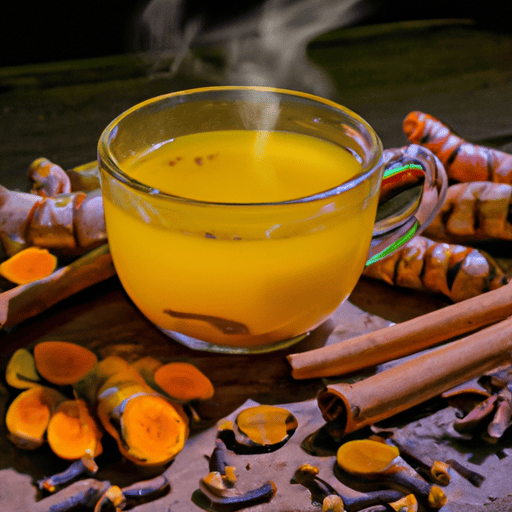
It’s important to be aware of how Ashwagandha may interact with other drugs you’re taking, as it can lead to potential side effects.
Ashwagandha has been found to have sedative effects, so when taken with medications that also have sedative properties, such as benzodiazepines or opioids, it can increase the risk of drowsiness, dizziness, and impaired coordination.
Additionally, Ashwagandha may interact with medications used to treat thyroid conditions, such as levothyroxine, potentially affecting thyroid hormone levels.
It’s crucial to consult with a healthcare professional before combining Ashwagandha with any medications to ensure there are no harmful interactions and to monitor for potential side effects.
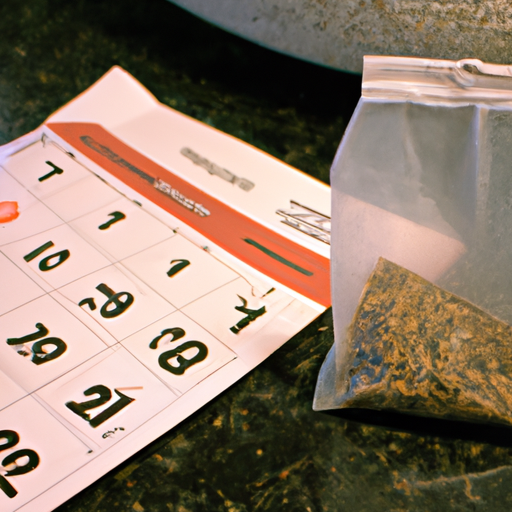
Digestive Issues May Occur
One potential side effect of Ashwagandha is that it may cause digestive issues, such as stomach discomfort or diarrhea. While Ashwagandha is generally considered safe, it’s important to be aware of the potential for these digestive issues.
It’s believed that Ashwagandha may increase gastric acid secretion, which could lead to stomach discomfort or even diarrhea in some individuals. If you experience any digestive issues while taking Ashwagandha, it’s recommended to reduce the dosage or discontinue use.
It’s also important to note that digestive health is essential for overall well-being, and alternative remedies such as herbal teas or probiotics may offer relief for those experiencing digestive issues.
As always, it’s best to consult with a healthcare professional before starting any new supplement or alternative remedy for digestive health.

Conclusion: Is Ashwagandha a Caffeine-Free Option?
After considering the evidence, it’s clear that Ashwagandha is indeed a caffeine-free option.
Ashwagandha, known for its adaptogenic properties, has been used for centuries as a natural alternative for stress management. Unlike caffeine, which is a stimulant that can increase heart rate and cause jitters, Ashwagandha works to balance the body’s stress response and promote a sense of calm and relaxation.
Numerous studies have shown its effectiveness in reducing stress and anxiety levels, without the unwanted side effects of caffeine.
Additionally, Ashwagandha has been found to improve sleep quality and enhance cognitive function.

Frequently Asked Questions
Can Ashwagandha Be Used as a Substitute for Caffeine?
Ashwagandha provides numerous benefits, but it cannot be used as a direct substitute for caffeine. While it may help with energy levels and stress reduction, it doesn’t provide the same stimulating effects as coffee.
What Are the Potential Side Effects of Consuming Ashwagandha?
Potential interactions with medications and long-term effects of ashwagandha use are important considerations. It’s crucial to consult with a healthcare professional to fully understand the possible side effects and ensure its safe use.
How Does Ashwagandha Compare to Caffeine in Terms of Energy-Boosting Properties?
Ashwagandha vs. caffeine: Which is better for focus and productivity? Natural energy boosters, ashwagandha and caffeine, have different effects on the body. While ashwagandha promotes relaxation and stress reduction, caffeine provides a temporary energy boost.
Are There Any Scientific Studies That Show the Effectiveness of Ashwagandha in Increasing Energy Levels?
There is scientific evidence supporting the effectiveness of ashwagandha in increasing energy levels. Studies have shown its ability to reduce fatigue and improve physical performance, making it a promising natural alternative for boosting energy.

How Can Ashwagandha Be Incorporated Into a Daily Routine for Maximum Benefits?
When incorporating ashwagandha into our daily routine, it’s important to consider the proper dosage and timing. The best time to take ashwagandha may vary, so it’s advisable to consult with a healthcare professional for personalized guidance.
Conclusion
In conclusion, if you’re looking for a caffeine-free option to boost your energy and overall well-being, ashwagandha is the way to go!
With its natural energy-boosting properties and numerous health benefits, ashwagandha has been scientifically proven to be a great alternative to caffeine.
Incorporating ashwagandha into your daily routine can help you stay energized and focused without the negative side effects of caffeine.
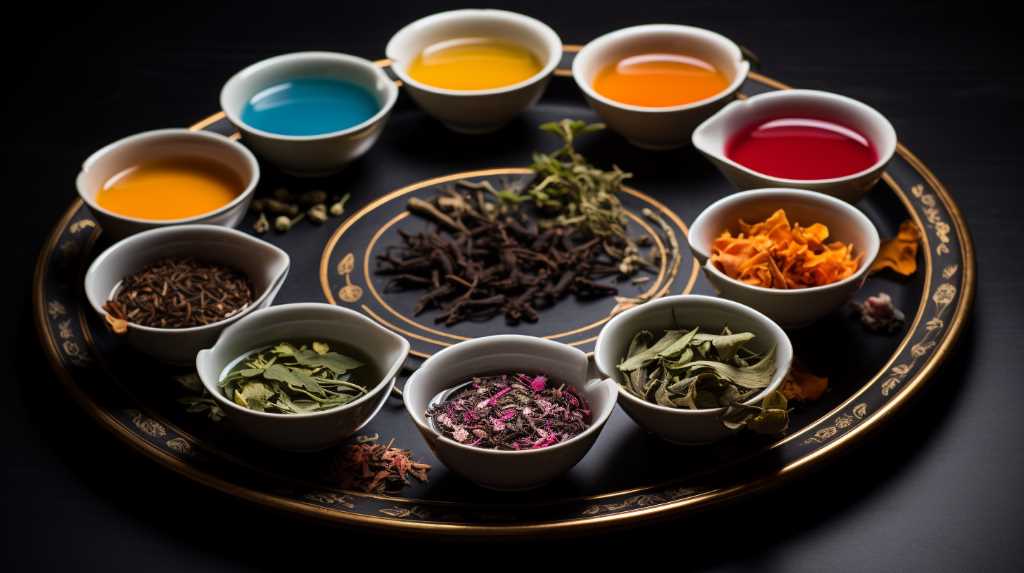
So why settle for a temporary caffeine fix when you can choose the holistic benefits of ashwagandha?
Justin is a seasoned author, coffee and tea enthusiast, and an essential member of the Cappuccino Oracle team. With a keen appreciation for the complexities of coffee, coffee alternatives, and tea, Justin has dedicated his professional career to exploring these realms and sharing his insights with readers worldwide.
Justin’s immersion in the world of coffee, coffee alternatives, and tea began at a young age, kindling a passion that extended beyond mere consumption. This love for these beverages led him to combine his talent for writing with his devotion to coffee and tea, bringing him to Cappuccino Oracle as a dedicated author.
Ashwagandha
Safe Adaptogen Drinks for a Healthy Pregnancy Guide

Here’s the scoop, folks: Are adaptogen drinks safe for pregnancy? We’ve got the lowdown for you.
When it comes to expectant mothers, it’s crucial to consider the potential risks and benefits of these trendy beverages. While adaptogen drinks may offer perks, there could be concerns during pregnancy.
But fear not! We’ve got safe alternatives and a handy tip: consult with a healthcare professional for personalized guidance.
Get ready to sip smart and make informed choices for you and your little one.
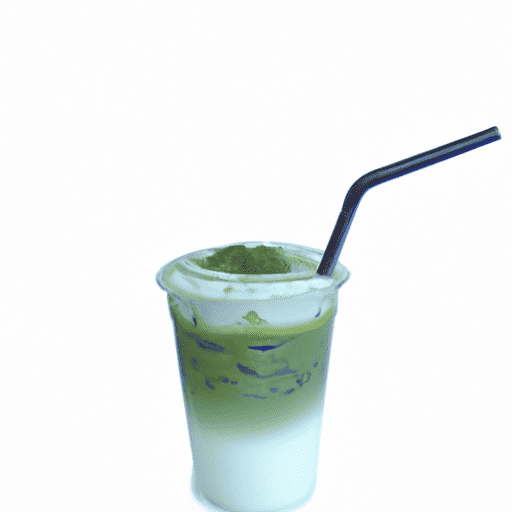
Key Takeaways
- Limited research on adaptogens’ safety during pregnancy.
- Certain adaptogens like licorice root and ashwagandha may have adverse effects and should be avoided during pregnancy.
- Adaptogen drinks may support improved well-being and stress management during pregnancy.
- It is important to consult with a healthcare provider before using adaptogens or consuming adaptogen drinks during pregnancy.
Understanding Adaptogens and Pregnancy
Understanding the effects of adaptogens on pregnancy is crucial for making informed decisions about their safety during this important time. Adaptogens are known for their ability to help the body adapt to stress and maintain hormonal balance. While some studies suggest that adaptogens may have positive effects on hormonal balance, there’s limited research on their safety during pregnancy.
It’s important to note that each adaptogen may have different effects on pregnancy, and individual responses can vary. Research on adaptogens and pregnancy safety is still ongoing, and it’s recommended to consult with a healthcare provider before using adaptogens during pregnancy.
Being aware of the potential risks and benefits can help expectant mothers make informed choices for their own well-being and that of their developing baby.
Potential Risks of Consuming Adaptogen Drinks During Pregnancy
We rarely encounter studies that provide definitive evidence on the potential risks of consuming adaptogen drinks during pregnancy. However, it’s important to consider the potential side effects and the impact they may have on fetal development.

While adaptogens are generally considered safe for most people, the limited research available suggests that certain adaptogens, such as licorice root and ashwagandha, may have adverse effects during pregnancy.
Licorice root, for example, contains a compound called glycyrrhizin, which has been associated with increased risk of preterm labor and developmental issues. Ashwagandha, on the other hand, has been linked to potential harm to the fetus and should be avoided during pregnancy.
It’s crucial for pregnant women to consult with their healthcare provider before consuming adaptogen drinks to ensure the safety of both mother and baby.
Benefits of Adaptogen Drinks for Expectant Mothers
Adaptogen drinks offer expectant mothers a range of potential benefits during pregnancy. These beverages are known for their ability to support improved well-being and stress management, which are crucial aspects of a healthy pregnancy. Pregnancy can bring about various physical and emotional changes, and adaptogen drinks may help alleviate some of the associated stress and discomfort.

Adaptogens are natural substances that aid the body in adapting to stress and promoting balance. By incorporating adaptogen drinks into their routine, expectant mothers may experience reduced feelings of anxiety, increased energy levels, and better overall mood.
It’s important, however, to consult with a healthcare professional before introducing adaptogen drinks into the pregnancy diet to ensure they’re safe and suitable for individual needs.
Safe Alternatives to Adaptogen Drinks During Pregnancy
During pregnancy, it’s important to explore safe alternatives to incorporate into our routine instead of adaptogen drinks. While adaptogen drinks may have potential side effects during pregnancy, there are plenty of adaptogen-free beverage options that can provide similar benefits.
Here are five alternatives to consider:

- Herbal teas: Choose caffeine-free herbal teas like chamomile, ginger, or peppermint for a soothing and hydrating option.
- Fruit-infused water: Infusing water with slices of fruit like lemon, cucumber, or berries can add flavor and hydration without the need for adaptogens.
- Coconut water: Packed with electrolytes, coconut water is a refreshing and natural choice to keep you hydrated.
- Freshly squeezed juices: Opt for freshly squeezed juices made from fruits and vegetables for a boost of vitamins and minerals.
- Sparkling water with a splash of fruit juice: If you crave some fizziness, try mixing sparkling water with a splash of your favorite fruit juice for a refreshing and flavorful drink.
Consultation With a Healthcare Professional for Personalized Advice
Before incorporating any new beverages into our pregnancy routine, it’s essential to consult with a healthcare professional for personalized advice. Pregnancy is a unique and delicate time, and it’s important to take a holistic approach to our health and well-being.
An experienced healthcare professional can provide guidance tailored to our specific needs and circumstances. They can help us navigate the vast array of alternative options available and determine which ones are safe and suitable for us during pregnancy. Consulting with a healthcare professional ensures that we receive evidence-based information and personalized recommendations that take into account any pre-existing medical conditions or medications we may be taking.
Their expertise will help us make informed decisions and prioritize the health and safety of ourselves and our unborn child.
Frequently Asked Questions
Can I Continue Consuming Adaptogen Drinks During Pregnancy if I Have Been Regularly Consuming Them Prior to Becoming Pregnant?
We need to consider the potential risks of continuing to consume adaptogen drinks during pregnancy, especially if we have been regularly consuming them prior to becoming pregnant. There may be safer alternatives for managing pregnancy symptoms.
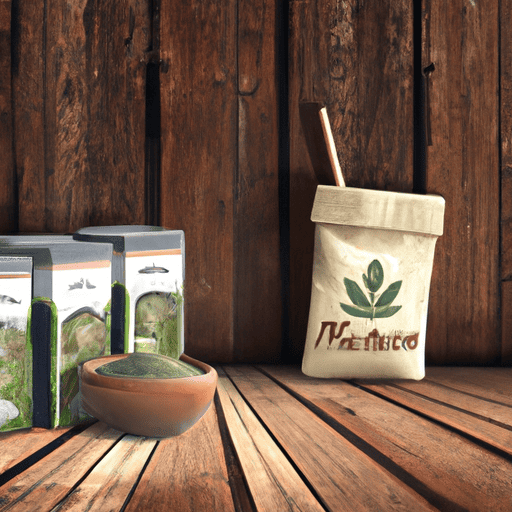
Are There Any Specific Adaptogens That Are Considered Safe for Consumption During Pregnancy?
Based on our research, there are specific adaptogens that are considered safe for consumption during pregnancy. It’s important to consult with a healthcare professional to ensure safety and discuss individual circumstances.
Can Adaptogen Drinks Help With Common Pregnancy Symptoms Such as Morning Sickness and Fatigue?
Adaptogen drinks can potentially provide a natural remedy for common pregnancy symptoms like morning sickness and fatigue. They have been studied for their effectiveness in reducing these symptoms, but it’s important to consider safety during pregnancy.
Are Adaptogen Drinks Safe to Consume During All Stages of Pregnancy?
We need to consider the potential risks of consuming adaptogen drinks during pregnancy. It’s important to explore alternatives for managing pregnancy symptoms that are safe and supportive for both mom and baby.
Are There Any Potential Long-Term Effects on the Baby if I Consume Adaptogen Drinks During Pregnancy?
There may be potential risks associated with consuming adaptogen drinks during pregnancy, including potential effects on fetal development. It is important to consider the long-term impact on the baby before consuming these drinks.

Conclusion
In conclusion, while adaptogen drinks may offer potential benefits for expectant mothers, there are also potential risks associated with consuming them during pregnancy. It’s important for pregnant women to consult with a healthcare professional for personalized advice before incorporating adaptogen drinks into their diet.
There are safe alternatives available that can provide similar benefits without the potential risks. Making informed decisions about what to consume during pregnancy is as important as choosing the right path to take on a journey.
Justin is a seasoned author, coffee and tea enthusiast, and an essential member of the Cappuccino Oracle team. With a keen appreciation for the complexities of coffee, coffee alternatives, and tea, Justin has dedicated his professional career to exploring these realms and sharing his insights with readers worldwide.
Justin’s immersion in the world of coffee, coffee alternatives, and tea began at a young age, kindling a passion that extended beyond mere consumption. This love for these beverages led him to combine his talent for writing with his devotion to coffee and tea, bringing him to Cappuccino Oracle as a dedicated author.
Ashwagandha
How Does Tulsi Tea Benefit Your Body?
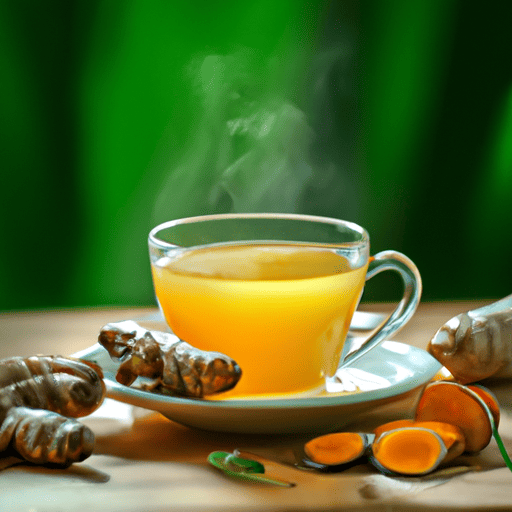
Are you seeking a natural way to boost your health and well-being? Look no further than Tulsi tea! With its numerous benefits, this herbal infusion is a powerhouse for our bodies.
From strengthening our immune system to reducing stress levels, Tulsi tea has it all. Not only does it improve digestion and support respiratory health, but it also enhances our skin health.
Join us as we explore the wonders of Tulsi tea and discover how it can serve our bodies.
Key Takeaways
- Tulsi tea strengthens the immune system and protects against infections and diseases.
- Tulsi tea promotes relaxation, improves mental well-being, and reduces anxiety.
- Tulsi tea aids in digestion, reduces digestive issues, and facilitates better nutrient absorption.
- Tulsi tea treats respiratory infections, fights against respiratory pathogens, and strengthens the respiratory system.
Boosts Immune System
One of the main benefits of Tulsi tea is that it strengthens our immune system. Tulsi, also known as Holy Basil, is packed with antioxidants and phytochemicals that help to boost our body’s natural defense against infections and diseases. Research has shown that the compounds found in Tulsi tea have antimicrobial, antiviral, and anti-inflammatory properties, which can help to strengthen our immune response and protect us from various illnesses.

Not only does Tulsi tea boost our immune system, but it also promotes cardiovascular health. Studies have indicated that Tulsi tea can help to reduce cholesterol levels and regulate blood pressure, which are important factors in maintaining a healthy heart. Additionally, Tulsi tea has been found to improve blood circulation and reduce the risk of blood clot formation, further supporting cardiovascular health.
Incorporating Tulsi tea into our daily routine can provide us with a natural and holistic way to enhance our immune system and promote cardiovascular well-being. By boosting our energy levels and supporting our overall health, Tulsi tea can help us to better serve others by keeping ourselves strong and resilient.
Reduces Stress Levels
After boosting our immune system and promoting cardiovascular health, Tulsi tea also plays a key role in reducing stress levels. Tulsi, also known as holy basil, has been used for centuries in Ayurvedic medicine for its calming and soothing properties. The tea contains compounds that promote relaxation and improve mental well-being, making it an excellent choice for those seeking stress relief.
To understand the impact of Tulsi tea on stress levels, let’s take a look at the following table:

| Benefits of Tulsi Tea for Reducing Stress Levels | Evidence |
|---|---|
| Promotes relaxation | Studies have shown that the active compounds in Tulsi tea have a calming effect on the body and mind. |
| Improves mental well-being | Consuming Tulsi tea has been associated with reduced anxiety and improved mood. |
As you can see, Tulsi tea offers tangible benefits when it comes to managing stress. By incorporating this herbal remedy into our daily routine, we can experience a greater sense of calm and overall well-being.
Improves Digestion
To continue our exploration of the benefits of Tulsi tea, let’s delve into how it improves digestion.
Tulsi tea promotes gut health by aiding in digestion and reducing digestive issues. The natural compounds found in Tulsi tea, such as eugenol and carvacrol, have been shown to have anti-inflammatory and antimicrobial properties that can help soothe the digestive system and reduce bloating and stomach discomfort.
Additionally, Tulsi tea contains certain enzymes that aid in the breakdown of food, facilitating better nutrient absorption. This can support weight loss efforts by improving metabolism and reducing cravings.

By promoting a healthy digestive system, Tulsi tea can help optimize overall health and well-being.
As we transition to the next section, let’s explore how Tulsi tea supports respiratory health.
Supports Respiratory Health
Moving on from improving digestion, Tulsi tea also provides support for our respiratory health.
Tulsi, also known as holy basil, has been used for centuries in Ayurvedic medicine to treat respiratory infections and promote lung function. Research suggests that Tulsi possesses antimicrobial properties that can help fight against respiratory pathogens, such as bacteria and viruses.

Additionally, Tulsi tea has been found to have bronchodilator effects, which can help relax the muscles in the airways and improve breathing.
By including Tulsi tea in our daily routine, we can strengthen our respiratory system and reduce the risk of respiratory infections.
Now, let’s explore how Tulsi tea enhances skin health.
Enhances Skin Health
Continuing with the benefits of Tulsi tea, we can also explore how it enhances our skin health.

Tulsi tea is known for its skin rejuvenation properties, making it a popular choice for those looking to maintain a youthful appearance. The antioxidants present in Tulsi tea help to fight against free radicals, which can cause premature aging and skin damage.
These antioxidants also help to reduce inflammation, which can contribute to skin conditions such as acne and eczema. Additionally, Tulsi tea contains essential vitamins and minerals that promote collagen production, improving the elasticity and firmness of the skin.
Regular consumption of Tulsi tea may result in a reduction of fine lines and wrinkles, giving the skin a smoother and more youthful appearance.
Frequently Asked Questions
Can Tulsi Tea Help With Weight Loss?
Tulsi tea benefits may include weight loss support, but it’s important to remember that maintaining a healthy weight involves a balanced diet and regular exercise. To incorporate tulsi tea into your daily routine, try enjoying a cup in the morning or as an afternoon pick-me-up.

Does Tulsi Tea Have Any Side Effects?
Are there any potential risks or allergic reactions associated with tulsi tea? It’s important to consider these factors before incorporating it into our daily routine. Let’s explore the possible side effects.
Can Tulsi Tea Be Consumed During Pregnancy?
During pregnancy, it is important to consider the impact of Tulsi tea on prenatal health and fetal development. We should be mindful of any potential effects it may have and consult with a healthcare professional for guidance.
Is Tulsi Tea Safe for Children?
Tulsi tea benefits for children include promoting a healthy immune system and providing antioxidants. However, it is important to consider allergies. Before giving tulsi tea to kids, consult with a healthcare professional.
Can Tulsi Tea Be Consumed With Other Medications or Supplements?
Tulsi tea’s interactions with prescription drugs and supplements should be considered. While it may offer potential benefits, there are also risks. It’s important to consult with a healthcare professional to ensure safety and effectiveness.

Conclusion
In conclusion, incorporating tulsi tea into your daily routine can have a multitude of benefits for your body. It strengthens the immune system, lowers stress levels, aids digestion, supports respiratory health, and promotes healthier skin.
Just like a soothing balm for the body, tulsi tea nourishes and nurtures, providing a holistic approach to wellness. So why not indulge in a comforting cup of tulsi tea and let its healing properties embrace you like a warm embrace on a cold winter’s day?
Justin is a seasoned author, coffee and tea enthusiast, and an essential member of the Cappuccino Oracle team. With a keen appreciation for the complexities of coffee, coffee alternatives, and tea, Justin has dedicated his professional career to exploring these realms and sharing his insights with readers worldwide.
Justin’s immersion in the world of coffee, coffee alternatives, and tea began at a young age, kindling a passion that extended beyond mere consumption. This love for these beverages led him to combine his talent for writing with his devotion to coffee and tea, bringing him to Cappuccino Oracle as a dedicated author.
Ashwagandha
How Does Elderberry Tea Benefit You?

Did you know that elderberry tea has been used for centuries to support our health and well-being? It’s true!
In fact, studies have shown that drinking elderberry tea can boost our immune system, relieve cold and flu symptoms, fight inflammation, support heart health, and promote skin health.
So, if you’re looking for a natural way to take care of yourself and serve others, grab a cup of elderberry tea and reap the benefits!
Key Takeaways
- Boosts immune system by enhancing its ability to fight off infections and illnesses
- Relieves cold and flu symptoms, reducing duration and severity
- Fights inflammation, reducing pain and improving digestion
- Supports heart health by improving cardiovascular function and reducing the risk of heart disease
Boosts Immune System
Elderberry tea offers multiple benefits for our health, specifically for our immune system and digestive health.

Firstly, elderberry tea strengthens our immune system by enhancing its ability to fight off infections and illnesses. This powerful tea contains antioxidants and vitamins that support the immune system’s function. The antioxidants in elderberry tea help reduce oxidative stress, which is caused by an imbalance of free radicals in the body. By reducing oxidative stress, elderberry tea helps protect our cells from damage and supports overall immune health.
Not only does elderberry tea boost our immune system, but it also improves digestion. The natural compounds found in elderberries have been shown to have anti-inflammatory and antimicrobial properties, which can help soothe and heal the digestive system. This can lead to improved digestion, reduced bloating, and better nutrient absorption.
Incorporating elderberry tea into our daily routine can provide numerous benefits for our immune system and digestive health. So, let’s brew a cup of this delicious tea and give our bodies the support they need to stay healthy and strong.
Relieves Cold and Flu Symptoms
When we’re battling cold and flu symptoms, elderberry tea can help alleviate them. Elderberry has long been used as a natural remedy in alternative medicine to relieve these common ailments. Research suggests that elderberry contains compounds that can inhibit the replication of viruses, including those responsible for colds and the flu. One study found that elderberry extract reduced the duration and severity of flu symptoms by stimulating the immune system. Another study showed that elderberry extract can help relieve cold symptoms, such as nasal congestion and coughing. These findings indicate that elderberry tea can be a beneficial addition to our arsenal of natural remedies for cold and flu relief.

Now, let’s explore how elderberry tea fights inflammation and promotes overall well-being.
Fights Inflammation
After relieving cold and flu symptoms, elderberry tea continues to be beneficial as it fights inflammation. The anti-inflammatory properties of elderberry tea have been shown to reduce pain and improve digestion.
Here are three ways elderberry tea can help combat inflammation:
- Reduces pain: Elderberry tea contains compounds that have been found to alleviate pain associated with inflammation. By reducing inflammation in the body, elderberry tea can help relieve joint pain and discomfort.
- Improves digestion: Inflammation in the digestive system can lead to issues such as bloating, gas, and indigestion. Elderberry tea has been shown to have a soothing effect on the digestive tract, reducing inflammation and promoting healthy digestion.
- Supports overall wellness: Chronic inflammation is linked to various health conditions, including heart disease, diabetes, and autoimmune disorders. By fighting inflammation, elderberry tea can help support overall wellness and reduce the risk of these conditions.
Incorporating elderberry tea into your daily routine can be a natural and enjoyable way to combat inflammation and promote a healthy body.

Supports Heart Health
Continuing our exploration of the benefits of elderberry tea, it supports heart health by improving cardiovascular function and reducing the risk of heart disease. Elderberry tea contains antioxidants and anti-inflammatory compounds that help protect the heart and blood vessels from damage caused by oxidative stress and inflammation.
To better understand the impact of elderberry tea on heart health, let’s take a look at the table below:
| Elderberry Tea Benefits for Heart Health |
|---|
| Improves cardiovascular function |
| Reduces risk of heart disease |
Studies have shown that elderberry tea can improve cardiovascular function by enhancing blood flow, reducing blood pressure, and promoting healthy cholesterol levels. Additionally, the antioxidants present in elderberries help prevent the formation of plaques in the arteries, reducing the risk of heart disease.
As we transition to the next section on ‘promotes skin health’, it’s important to note that elderberry tea not only supports heart health but also offers a wide range of benefits for overall well-being.

Promotes Skin Health
Now, let’s explore how elderberry tea contributes to promoting skin health.
Incorporating elderberry tea into your daily routine can have positive effects on your skin. Here are three ways elderberry tea can benefit your skin:
- Improves digestion: Elderberry tea contains antioxidants and fiber that can aid in digestion. By promoting a healthy digestive system, elderberry tea helps eliminate toxins from your body, which can lead to clearer and healthier skin.
- Reduces oxidative stress: The antioxidants found in elderberry tea help reduce oxidative stress caused by free radicals. This can prevent premature aging, such as wrinkles and fine lines, and promote a youthful and radiant complexion.
- Boosts collagen production: Elderberry tea is rich in vitamins A and C, which are essential for collagen production. Collagen is a protein that provides structure and elasticity to the skin. By boosting collagen production, elderberry tea can help improve skin firmness and reduce the appearance of sagging or dull skin.
Incorporating elderberry tea into your skincare routine can be a natural and effective way to promote healthy and glowing skin.
Frequently Asked Questions
Can Elderberry Tea Be Consumed by Pregnant Women?
During pregnancy, it is important to consider safety precautions when consuming elderberry tea. It is recommended to consult with a healthcare professional for alternatives that are safe and beneficial for pregnant women.

Is There a Recommended Dosage of Elderberry Tea for Children?
When it comes to elderberry tea, we must consider dosage recommendations and safety concerns, especially for children. It’s important to consult with a healthcare professional to ensure the right amount is consumed.
Can Elderberry Tea Interact With Any Medications?
When taking elderberry tea, it is important to consider potential interactions with medications, especially blood thinners. Some side effects may occur. It’s best to consult with a healthcare professional for personalized advice.
Does Elderberry Tea Help With Allergies?
Elderberry tea can boost our immune system, helping to alleviate cold symptoms. It’s a natural remedy for allergies as well. So, drinking elderberry tea can be a comforting and effective way to support our health.
How Long Should One Brew Elderberry Tea for Optimal Health Benefits?
When brewing elderberry tea for optimal health benefits, we should consider the brewing time and techniques. By following recommended guidelines, we can ensure that the tea releases its beneficial compounds and flavors.

Conclusion
In conclusion, incorporating elderberry tea into your daily routine can have numerous health benefits.
By boosting your immune system, relieving cold and flu symptoms, fighting inflammation, supporting heart health, and promoting skin health, elderberry tea becomes an essential addition to your wellness arsenal.
As the saying goes, ‘A cup of elderberry tea a day keeps the doctor away,’ so why not indulge in this delicious and beneficial beverage to maintain your overall well-being?
Justin is a seasoned author, coffee and tea enthusiast, and an essential member of the Cappuccino Oracle team. With a keen appreciation for the complexities of coffee, coffee alternatives, and tea, Justin has dedicated his professional career to exploring these realms and sharing his insights with readers worldwide.
Justin’s immersion in the world of coffee, coffee alternatives, and tea began at a young age, kindling a passion that extended beyond mere consumption. This love for these beverages led him to combine his talent for writing with his devotion to coffee and tea, bringing him to Cappuccino Oracle as a dedicated author.
-

 Americano2 weeks ago
Americano2 weeks agoHow to Make Korean Iced Americano
-

 Americano4 weeks ago
Americano4 weeks agoHow to Make Americano With Moka Pot
-

 Americano4 weeks ago
Americano4 weeks agoHow to Make Iced Americano With Instant Coffee
-

 Americano4 weeks ago
Americano4 weeks agoHow to Make Americano With Bialetti
-

 Americano4 weeks ago
Americano4 weeks agoHow to Make Dutch Bros Americano
-

 Americano6 days ago
Americano6 days agoHow to Make an Iced Americano With Nespresso
-

 Americano2 weeks ago
Americano2 weeks agoHow Many Shots of Espresso for 16 Oz Americano
-

 Turmeric Tea1 week ago
Turmeric Tea1 week agoTurmeric Saffron Tea
















